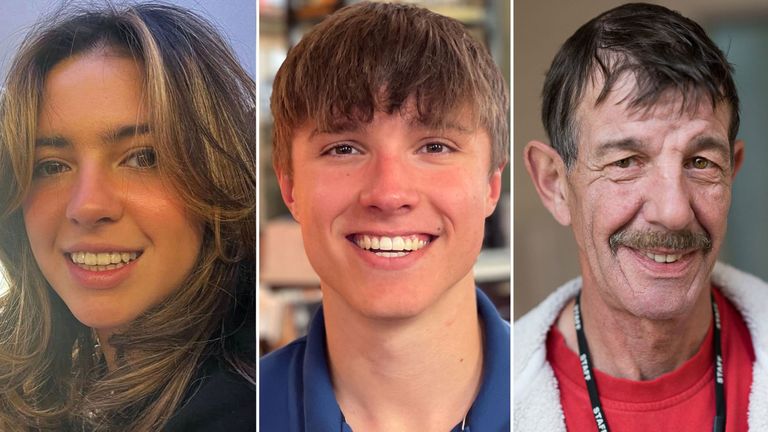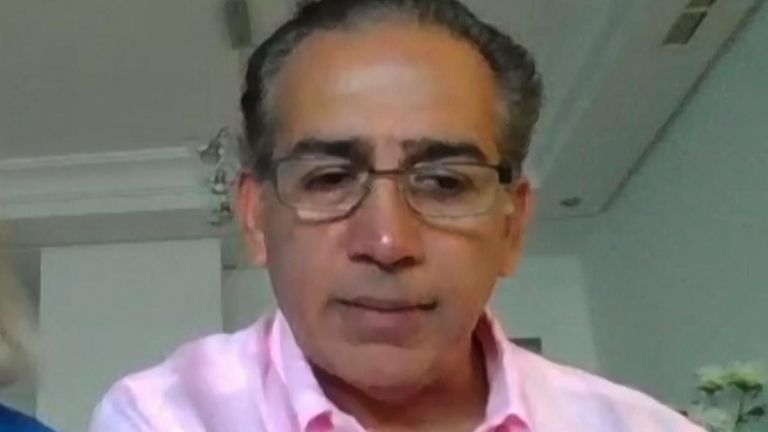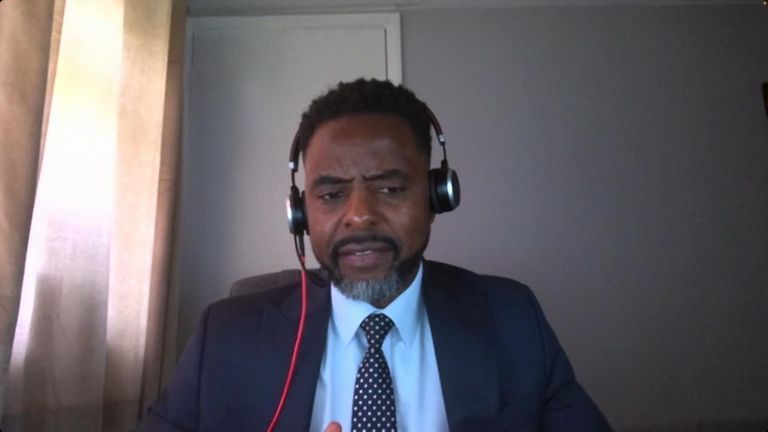‘Blood on their hands’: NHS trust ‘reduced or omitted’ details of risk posed by Nottingham killer
Services which attended to Nottingham knife attacker Valdo Calocane before he stabbed three people to death have been accused of having “blood on their hands”.
It comes after it emerged in a new report that Nottinghamshire Healthcare NHS Foundation Trust (NHFT) “understated or omitted” key details of the serious risk it posed to others.
Calocane – who suffers from paranoid schizophrenia – killed 19-year-old students Barnaby Webber and Grace O’Malley-Kumar before killing 65-year-old carer Ian Coates in June 2023.
It was him detention in a high security hospital – “probably for the rest of his life” – in January after prosecutors accepted a plea of manslaughter due to diminished responsibility.
The NHFT said it “accepted and accepted” the report’s conclusions and had “significantly improved processes”.
‘Important data removed’
The the second phase of the Care Quality Commission review (CQC) reviewed NHFT’s handling of the 32-year-old Calocane first murders.
It found that from May 2020 to September 2022, reliable risk assessments downplayed the fact that Calocane was refusing to take his medication and had persistent symptoms of psychosis.
The regulator said that while some risks were highlighted, other reviews “understated or omitted important information”.
It also said the decision to return the attacker to his GP in 2022 was made despite undisputed evidence that Calocane would “return to depressive symptoms and potentially violent behaviour”.
It was also revealed that Calocane had been committed to hospital four times under mental health laws before the attacks.
Grace’s mum and dad, Dr Sinead O’Malley and Dr Sanjoy Kumar, told Sky News they had been left “heartbroken” by the report.
Dr Kumar continued: “We had a simple case, a simple case of a guilty person who did not take his medication.
“All this is painful to read. It was basic.
“The mistakes were not technical, they were fundamental, fundamental mistakes… there were many chances to change the course of Calocane but none of those chances went taken by any doctors.
“The doctor who discharged him, it was something that should not have been done knowing that … the doctor had entered the details. he had the opportunity to kill someone.”
He added: “Any psychiatrist who puts a dangerous person on our streets must be responsible for getting that patient out.”
The CQC said it appeared there had been “a series of errors, omissions and misjudgments” in Calocane’s supervision.
Chris Dzikiti, interim health care inspector, said: “This review identifies factors where poor decision-making, omissions and errors of judgment contributed to the patient’s serious health problems. those of mind who did not receive the support and follow-up he needed.”
He said that although it was impossible to say that the events of June last year would not have happened if Calocane had received the support he needed, it is clear “that the harm he caused to the community was not properly managed.” and that the opportunities to reduce that risk were wrong”.
“For the people involved, their families and loved ones, the damage is irreparable,” Mr Dzikiti added.
‘Colossal failure, in the system’
The CQC asked how well the trust had dealt with Calocane’s family, who had raised concerns about his mental state on several occasions.
The families of the victims said the audit findings made “heartbreaking reading”.
“This report shows the serious, systemic weaknesses of the mental health trust in their dealings with Calocane; from beginning to end,” they said in a joint statement.
“We were failed by many organizations before and after June 2023. Along with Leicestershire and Nottinghamshire police, these departments and individual professionals have blood on their hands.
“It’s alarming, there seems to be little or no accountability amongst senior management within mental health trusts. We wonder why these people they’re still in that situation, and why.”
The families have confirmed that there will be a public inquiry into the events leading up to the attack, after meeting with Health Secretary Wes Streeting and Attorney General Richard Hermer.
A special review of mental health services at the NHFT was ordered by health secretary Victoria Atkins in January after Calocane was charged.
In findings published on Tuesday, the CQC said since Calocane had been in the care of the trust, “he had clearly been unwell”.
He developed symptoms of psychosis, appeared to have little understanding or acceptance of his condition and issues with his medication were previously reported, the CQC reported.
Read more:
Warning years before another attack kicks in the teeth’
Victims’ families are ‘outraged’ after a year
The Calocane judgment was not ‘unduely forceful’
The CQC also found that if Calocane had been treated under section 3 of the Mental Health Act after his fourth admission to hospital, healthcare professionals would have prescribed lasting for a long time, even against his will, or considering placing him under a community treatment order – which allows treatment to be carried out in the community, instead of in a hospital.
Instead, Calocane is classified under section 2 of the act, which is usually used for people who are not recognized by mental health services.
Mr Streeting said the report “makes for distressing reading, particularly for those living with the consequences of their loss in the knowledge that their untimely death could have been avoided”.
“I want to convince myself and the country that the shortcomings mentioned in Nottinghamshire are not repeated elsewhere,” he added.
An NHFT spokesperson said: “We welcome and accept the conclusions of this report and have significantly improved our procedures and standards since the review was carried out.”
The handling of Calocane’s case caused an outcry and led to many inquiries from the public agencies involved, including Nottinghamshire Police and Leicestershire Police.
#Blood #hands #NHS #trust #reduced #omitted #details #risk #posed #Nottingham #killer



